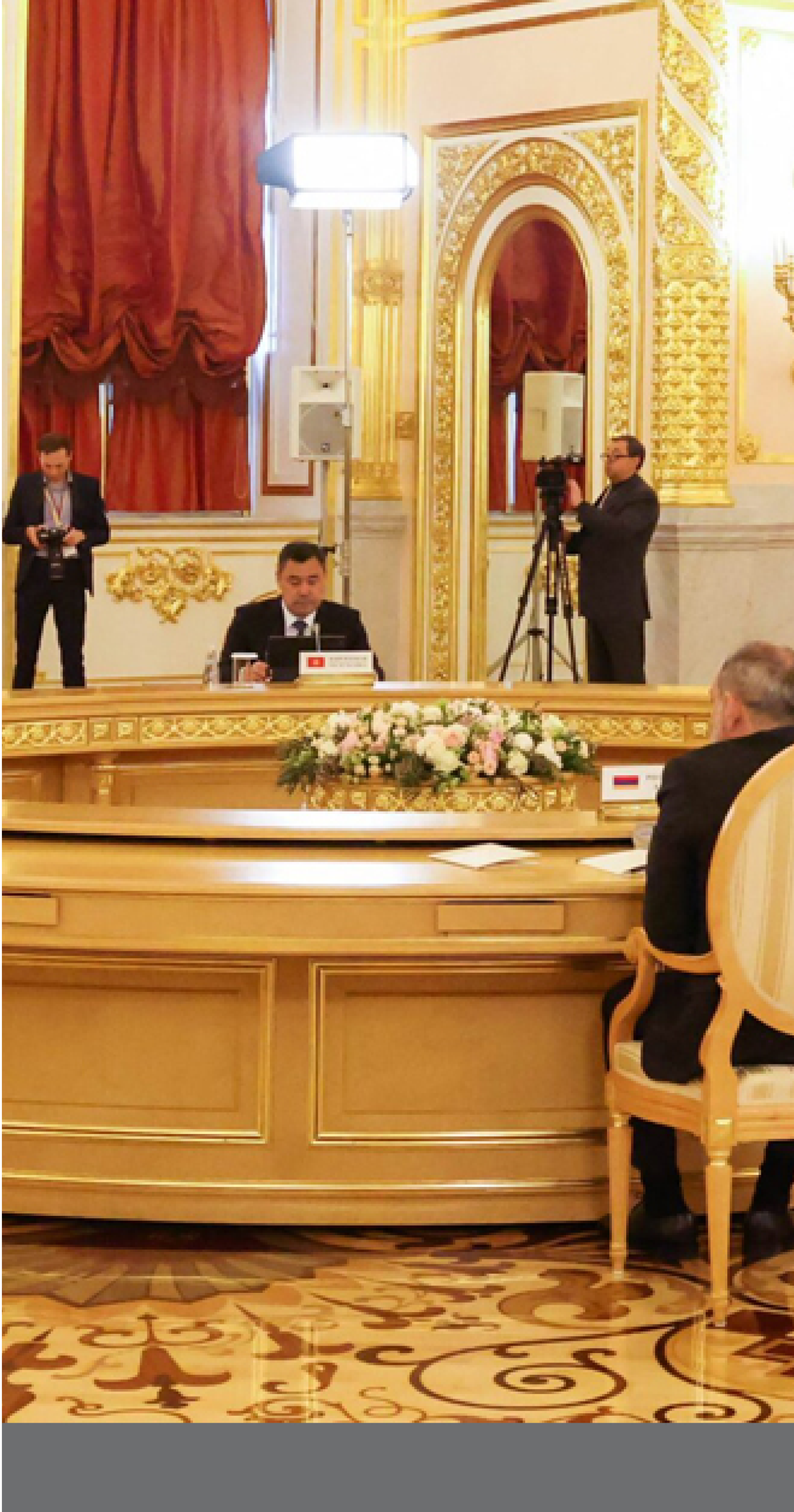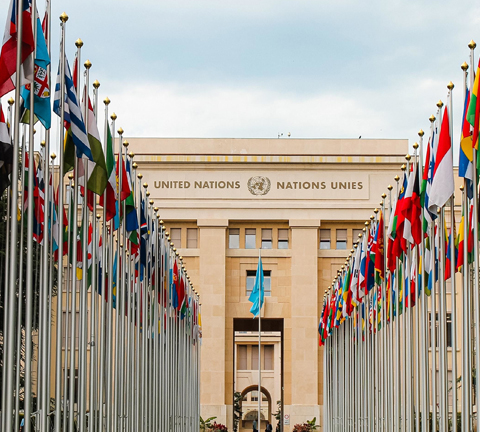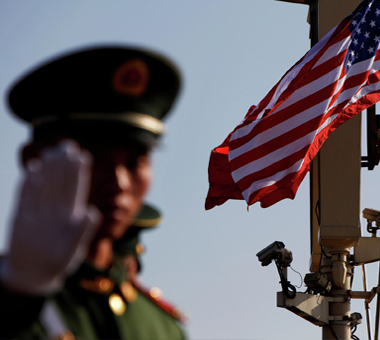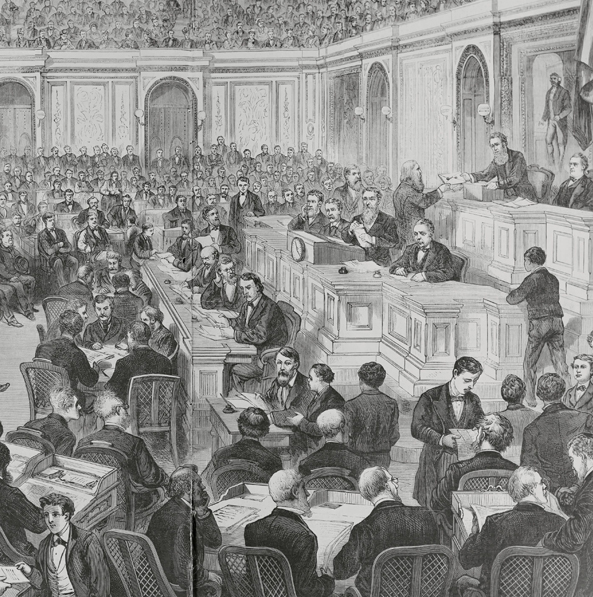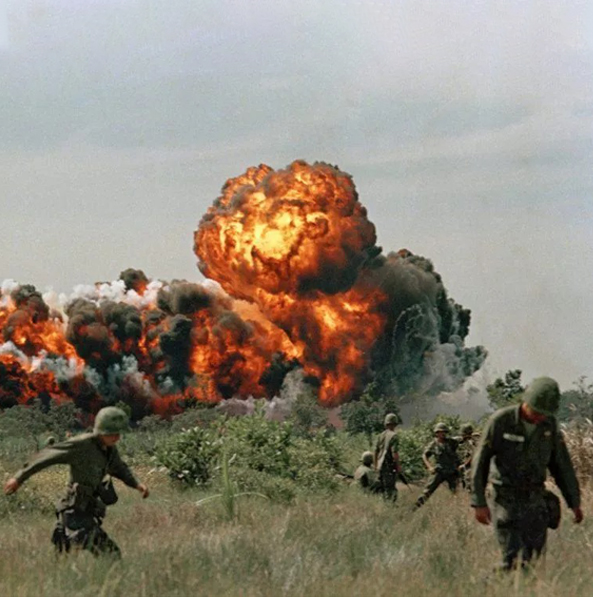Political Islam, Islamism, or Islamic fundamentalism, different terms, which describe a single political ideology that assumes that modern states must be reshaped in all respects: constitutional, economic, judicial, etc., by what is perceived as a revival or return to authentic Islamic practice. Thus, this ideology is always based on what its proponents describe as the correct religion, or the right understanding of the religion, and considers everyone who opposes it as violating the principle of religion.
This ideology has many fathers: Hassan al-Banna, Sayyid Qutb, Abu Al-Ala al-Mawdudi, Hassan al-Turabi, Ruhollah Khomeini, and on its basis, various parties, movements, and groups were built (mostly extremist). Some of them were able to cover this extremism by engaging in the political process in their country, while others adopted armed violence as a means of domination, control, and authoritarianism.
These political entities had many experiences over the last century in the region and in several Arab countries. These experiences varied in terms of size and influence, however, most of them experience a common outcome: failure.
Political Islam, and its most prominent and important organization, the Muslim Brotherhood, has a presence in most Arab countries, not to mention the relations between the branches of this organization, a global council that organizes these relations, and permanent exchange of experiences and expertise, not only in close countries such as Syria, Jordan, and Palestine but with those that are farther away are like Morocco and Tunisia. Despite that, the Brotherhood could not hold power in most cases, nor maintain it when they won it. A case that has a revealing dimension, as it shows that the Islamic political movement suffers from major structural problems and that its followers and those in its parties lack the grassroots, or general acceptance.
In the September 8 elections, Morocco's largest Islamist party, the Justice and Development Party, suffered a major defeat. After 12 years in power, the party won only 13 parliamentary seats, after 125 seats in the 2016 elections. Everyone expected the party to lose some votes in those elections, but no one expected this crushing defeat, even the party leader and his deputy lost their seats, which prompted them to resign immediately. Observers believe that what happened in Morocco was another nail - and the final - in the political Islam coffin, as its existence and its authority, witnessed a significant and clear decline in many Arab and Islamic countries.
Analysts and researchers of all different persuasions addressed this resounding fall of political Islam in Morocco and presented different opinions, interpretations, and many reasons, but the clearest and most prominent reason that most of them agreed upon is that the party called “justice” and “development” has failed to achieve either of them, i.e. it simply failed to deliver on its election promises.
Reneging on the promises is not limited to the Moroccan case but is also one of the main problems of political Islam, in general. The promises of this movement have always been "utopian", but not out of good faith, as these promises were formulated based on the hopes of the tired Arab peoples, and not on the possible, which means that fulfilling them is impossible and that their failure is inevitable from the moment they were launched. Making these promises was a mere attempt to play on people's feelings, and implant false hopes in them, to achieve political gains for specific narrow groups, and the personal interests of individuals only.
These promises are also accompanied by rhetorical, yet empty slogans, such as “Islam is the solution.” What does this slogan raised by the “Muslim Brotherhood” in Egypt during its revolution at the beginning of the last decade mean? What did the movement mean by it? It may seem attractive to some, but it is loose, delusional, and exclusionary as well. It does not clarify or picture the ways that the organization will follow to solve the complex crises that Egypt or other Arab countries suffer from at the various political, economic, social, as well as cultural, and ideological levels.
The use of Islamic terms or slogans for political purposes is also part of another reason for the failure that political Islam has experienced and is experiencing in the region, which is the sanctification of the unholy, and the deliberate politicization of religion. Islamists do not hesitate to adopt secular ideas and furnish them with religious attributes when it suits their goals and serves their interests. For example, Khomeini combined the modern concept of the republic and added an "Islamic" label to form a state of a fundamentalist theocratic nature.
Islamists focus excessively on the “Islamization” of everything, but by using a narrow-minded historical approach to Islam's worldview, and adopting an interpretation of Islamic law that is at odds with a secular, modern, and liberal world, although Islam never contradicts it. It is as if they are trying to resurrect the state of the first Hijri century in the middle of the fifteenth century, ignoring the contexts, morals, and cultural features that made the first Islamic state a center of civilized inspiration for the whole world. This reactionary, isolationist, and restrictive view is an obstacle to achieving any success in the globalized planet, in which we live today.
Hence, the Islamists are trying to give their political activity a "sacred" character, despite their similarity with the rest of the political parties and movements in terms of games, deception, and authoritarian inclination to totalitarianism, and their "religious discourse" is merely a means of polarization and mobilization. Back in Egypt, as soon as the Brotherhood came to power, they tried to exclude all movements and other political actors, moreover, they refused to negotiate and cooperate with them. If the army institution in Egypt was weaker, or its leadership was less firm and decisive at that stage, things would have differed, and the situation in Egypt would have developed into dire consequences.
In the Egyptian experience, the pretext, and guise of not having a real opportunity to assume the helm of leadership in any Arab country, has been fallen, as they reached the Egyptian presidency, that is, the highest authority in one of the most important and ancient Arab countries, and the most prestigious on regional and international politics, and in the hearts of all Arabs, as well. This event dramatically changed the political calculus across the region and had influential ramifications for both the Muslim Brotherhood and the broader understanding of political Islam. However, their rule did not last long, and Brotherhood president Mohamed Morsi was overthrown on July 3, 2013.
Grassroots
The organizations affiliated with this movement, from the Brotherhood and others, claim that they have a large Arab popular base, which appeared in the elections in several countries, and this is not a lie, but rather misleading. But the reasons for this are not related to the ideology of political Islam or the performance of its parties or men. Rather, this tendency was generally generated by the disappointments that these peoples suffered due to the bad ruling regimes, especially the military ones, the heirs of the revolutions of the middle of the last century, which remained hostage to the radical, leftist thought, in general, and could not thus, the transition of their countries to the ranks of modern states with leadership and civil societies.
But the reality has changed despite these reasons, and I can confidently say that the awareness of the Arab people is developing at a faster pace than the development of its representatives and political movements, and it is clear in almost all Arab countries, as people are benefiting from the technical revolution, while political entities are still mostly traditional and pre-modern, especially those that are based on religious ideology. As happened in Morocco, and before it in Tunisia and Egypt, people will not trust the promises of fundamentalist Islamic parties again and will not vote for them, and being “Islamic” will not constitute an access card for them towards power, or a “mascot” to stay in unless they achieve real political reforms and economic progress that the people sense.
The Straw of the Palestinian Cause
Today, political Islam has become like a drowning man clutching at a straw. The only remaining straw is the Palestinian cause, as countries and organizations that adopt this ideology and this movement are trying to “monopolize” the Palestinian cause and to legitimize its survival and existence by appearing as the faithful guardian of the “sanctuaries”, “the rights of the Palestinians,” and raising the slogan of eliminating Israel and expelling the Jewish from the region. But it will remain just another “utopian” slogan of political Islam, empty, impossible, and exclusionary, and far from being well-intentioned.
This movement's monopoly over the Palestinian cause is an extremely dangerous matter, and it transcends any threat that political Islam may pose in any other country. Its organization's maintenance of power in Palestine comes at the expense of the blood and lives of the Palestinians, as well as, security, stability, and peace building in the entire region. The time has come for the Palestinians to do what their brothers in Egypt, Tunisia, Morocco, and other Arab countries did, who overthrew the "Muslim Brotherhood" and its associations and controlled their presence and the rhythm of their movement in the State.
From Theocracy to Autocracy
In the end, I can only agree to a large extent with the opinion that the Muslim Brotherhood, and the Islamists in general, is one of the biggest threats to the stability and prosperity of the region and its system of international relations and alliances. Some sympathizers with this group might argue, “Will the region’s crises be resolved today after the Brotherhood lost power in several areas of the Arab world?” Perhaps not, but this does not negate the roles they played in the past, which contributed to the increasing complexity of Arab problems. And the increase in the domination and aggression of the opposite party, and it is no longer a secret how the “theocracy” of political Islam contributed to deepening the “autocracy” of some Arab regimes, not to mention the many cases in which political Islam has colluded with state regimes that it claims are authoritarian and that it opposes, especially when it is given regulated and conditional opportunities to participate in power, even at a minimum level.
No one has the right to question the ideology of political Islam at all, and they only have the right to interpret the texts of the religion and to issue fatwas that often contradict Islamic traditions. Having lost the intellectual, ideological, and democratic debate, they do not hesitate to resort to violence or military means in an attempt to win the argument. This largely explains why Islamism has - almost universally - developed a military wing or militias operating in parallel with political entities, and why they tend to be totalitarian?
This movement's politicization of religion has also allowed for the creation of a global view that believes that Islam tolerates violence and the spread of the phenomenon of what is called “Islamophobia”. The prestigious and authentic Islamic institutions are still making huge efforts to correct this view and eliminate this situation, and hence, wasting time and resources instead of exploiting them with what is the best and prosperity of Islamic societies.
Today we stand at a great historical turning point, made by the Arab peoples and the real Arab leaders, that says that political Islam is completely rejected in our countries. This was evident through the demonstrations against them in Sudan, the elimination or expulsion of extremists, as in Syria and Iraq, through the revolution against them in Egypt, limiting their role, as is the case in Jordan and Tunisia, or excluding them from the electoral boxes, as happened in Morocco. The era that enabled political Islam parties in the Arab world to exploit Islam and democracy alike to seize power in the midst of the Arab revolutions has ended, and it remains for them to lose their last “straw” in Palestine, hence, the cause will return to its true Palestinian and Arab incubator, and then the road to peace will be wide open; leading to a secure, stable and prosperous future for the entire region.
Keep in touch
In-depth analyses delivered weekly.
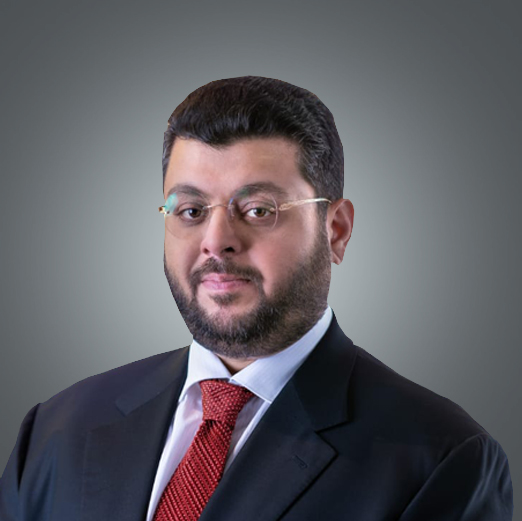
Related Analyses:







.jpg-%D8%AB%D9%84%D8%A7%D8%AB%D9%8A%D8%A9-%D8%A7%D9%84%D8%A7%D8%B3%D9%84%D8%A7%D9%85-%D8%A7%D9%84%D8%B3%D9%8A%D8%A7%D8%B3%D9%8A.jpg)
